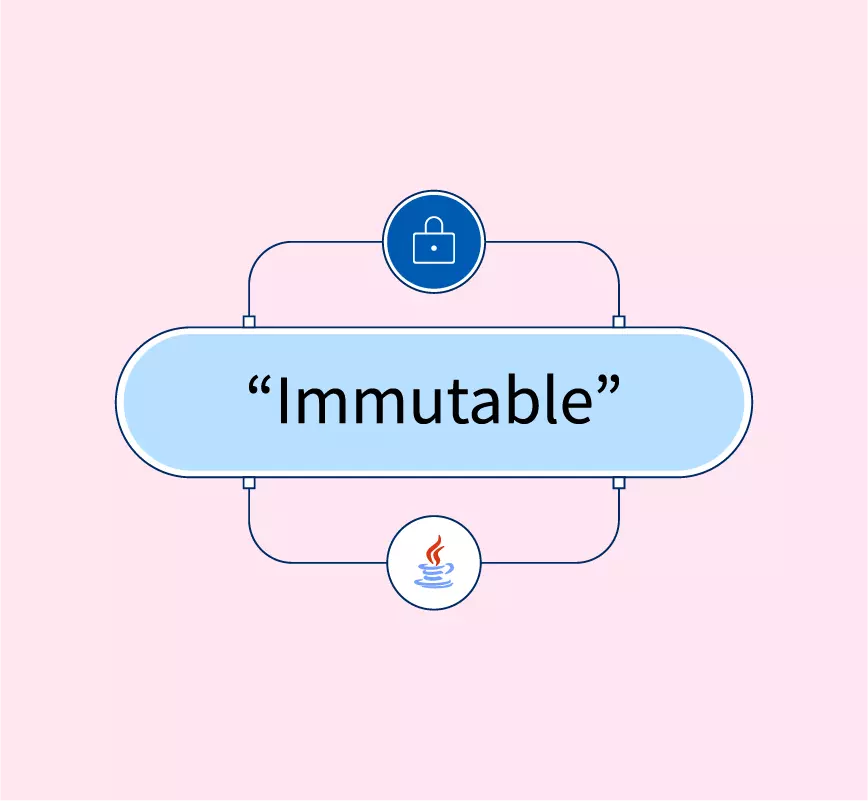Why Are Strings Immutable in Java? Comprehensive Analysis for Designers
Wiki Article
Immutable Strings: A Trick Element in Ensuring Information Consistency and Integrity
In the realm of data monitoring, the relevance of immutable strings can not be overstated. These unchanging series of personalities play a pivotal function in promoting the honesty and accuracy of info within systems. By maintaining a state of immutability, information consistency is made sure, cultivating a structure of integrity upon which crucial procedures count. The principle of unalterable strings goes beyond plain triviality; it is a linchpin in the complex internet of information administration. As we discover the advantages, execution strategies, and useful applications of immutable strings, a clearer image arises of their crucial nature in protecting the digital landscape.The Concept of Immutable Strings
Immutable strings, a fundamental idea in programs, describe strings that can not be customized once they are produced. In significance, as soon as a string value is appointed, any type of operation that appears to customize the string in fact creates a new string. This immutability makes certain information uniformity and reliability in applications, as it avoids unexpected adjustments to the initial information.
Benefits in Data Consistency

Information uniformity is important in various facets of software program advancement, including data source administration, multi-threaded atmospheres, and distributed systems (Why are strings immutable in Java?). Unalterable strings add dramatically to accomplishing this uniformity by stopping information corruption due to simultaneous accessibility. In situations where numerous procedures or strings communicate with the very same information all at once, unalterable strings serve as a safeguard versus race conditions and synchronization problems
Additionally, the immutability of strings simplifies debugging and screening procedures. With unalterable strings, designers can rely on that when a string is set, it will certainly stay unmodified, making it simpler to trace the source of mistakes and ensuring that examination situations create consistent results. This integrity in information managing eventually brings about a lot more steady and durable applications.

Carrying Out Unalterable Strings
Making certain the immutability of strings calls for a thoughtful technique to their application in software application growth. As soon as a string object is created, one vital method is to design string courses in a method that prevents alterations. By making strings unalterable, developers can boost data uniformity and dependability in their applications.To carry out immutable strings properly, programmers should prefer developing brand-new string items as opposed to customizing existing ones. This technique makes certain that as soon as a string is designated a worth, it can not be transformed. In addition, any procedure that shows up to modify the string should produce a brand-new string with the preferred changes rather than altering the original.
In addition, making use of unalterable strings can simplify concurrency administration in multi-threaded atmospheres. Since immutable strings can not be transformed after development, they can be safely shared amongst numerous strings without the threat of information corruption.
Role in Dependability Assurance
In software advancement, the use of immutable strings plays a crucial role in making sure the reliability of information procedures. Unalterable strings, as soon as developed, can not be modified, making sure that the information they represent stays constant throughout the application's implementation. This immutability property supplies a level of guarantee that the information being processed will certainly not be accidentally transformed, bring about unforeseen end results or errors in the system.By integrating unalterable strings into software program layout, designers can boost the integrity of their applications by lessening the risks connected with mutable data - Why are strings immutable in Java?. Immutable strings assist in preventing data corruption or unexpected alterations, which can be specifically critical when dealing with sensitive details or when data honesty is extremely important
Moreover, the usage of immutable strings simplifies simultaneous processing, as numerous strings can securely gain access to and share string data without the threat of one string changing the web content while an additional reads it. This facet adds dramatically to the total dependability of the software system, making sure foreseeable and regular actions in data managing procedures.
Applications and System Combination
The seamless integration of unalterable strings right into numerous applications and systems is critical for ensuring durable data uniformity and reliability throughout diverse technological atmospheres - Why are strings immutable in Java?. Unalterable strings play a critical duty in enhancing the integrity of information exchanges and communications within facility software program environments. By including unalterable strings into applications, programmers can reduce the threats connected with information meddling, unapproved alterations, and unintended changes, consequently strengthening the general protection stance of the systemIn the context of system combination, unalterable strings function as a foundational aspect for establishing protected communication channels and helping with seamless data transfers between different components. Their immutable nature makes certain that information transmitted between systems stays proven and unchanged, minimizing the chance of incongruities check it out or mistakes that might jeopardize the honesty of the entire system. Additionally, immutable strings can improve interoperability in between disparate systems by supplying a standardized style for information representation, allowing much more effective information handling and exchange methods across interconnected systems. By adopting my sources immutable strings in applications and system assimilation processes, organizations can strengthen their information framework and support the dependability and consistency of their information assets.
Verdict
In verdict, unalterable strings play a crucial function in maintaining information consistency and dependability in different applications and system assimilations. By ensuring that strings can not be altered when produced, the integrity of information is maintained, reducing the danger of variances and errors. Executing unalterable strings can significantly improve the integrity of systems, ultimately causing even more precise and reputable data handling.
Report this wiki page